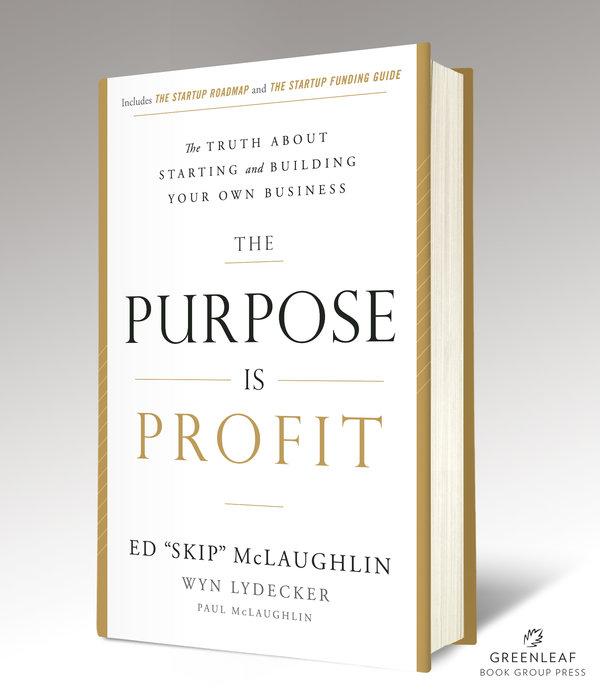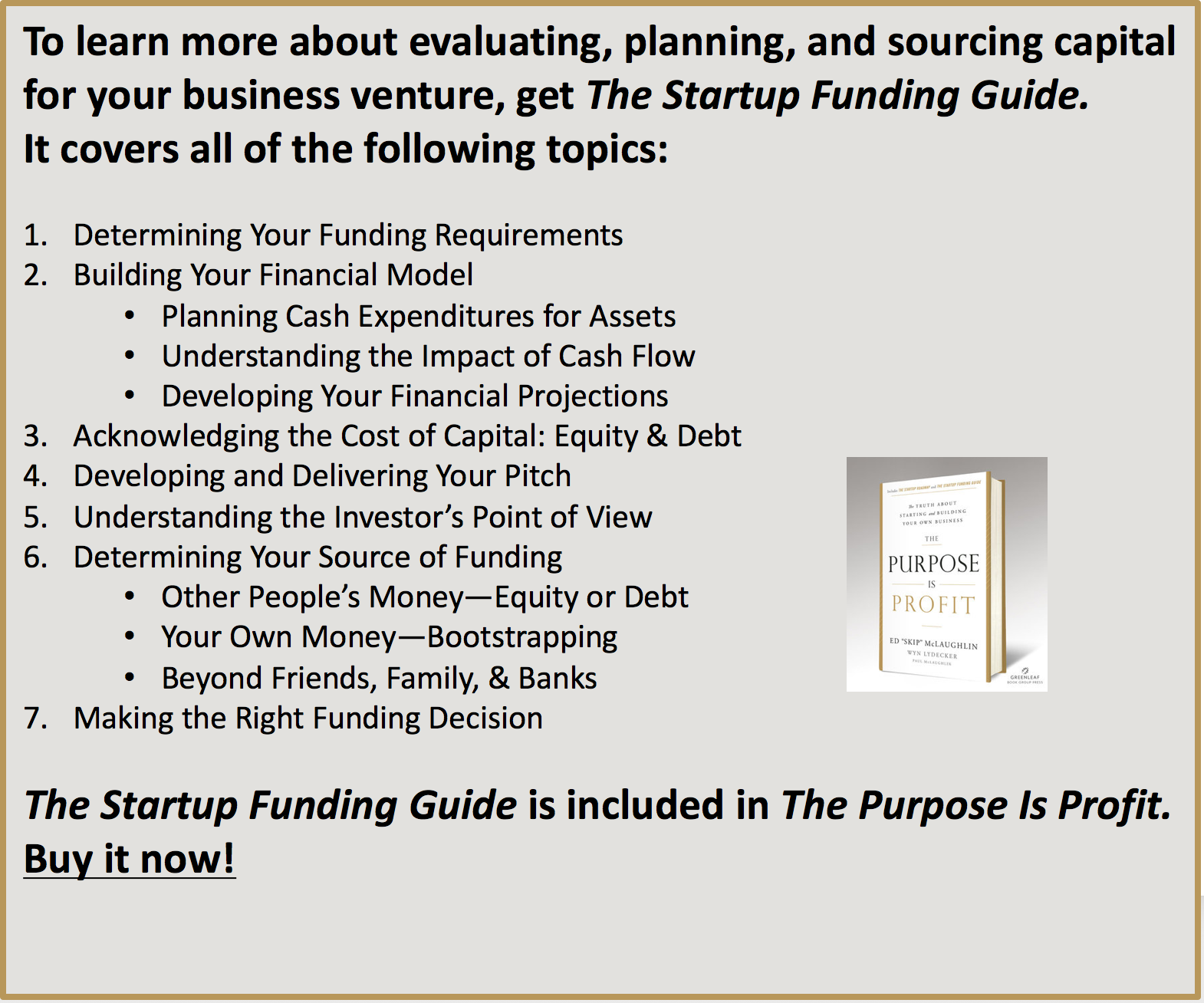
By Ed McLaughlin and Wyn Lydecker
Authors of The Purpose Is Profit: The Truth about Starting and Building Your Own Business
A startup typically goes through several rounds of funding from different investment sources as it expands. One of those sources is the “friends and family” round – one of the most common sources of early funding for entrepreneurs. In fact, most professional investors will expect that you have raised some funds this way in your early stage, according to Entrepreneur Magazine’s Martin Zwilling.
When I was planning to launch my business, USI, I took a long, hard look at the advantages and disadvantages of doing a friends and family round of financing.
Advantages of Friends and Family
- Your friends and family already know you very well – and you know them
- They will listen to your pitch because they care about you
- They are inclined to say, “Yes.”
- They can give you the time to build your business on your own schedule
- They will let you develop your vision into something others will recognize and value
- You will be set up to hit major milestones and raise the next round of funding from professionals at higher valuations.
Disadvantages of Friends and Family
- Your friends and family may know you too well
- They may not be able to add value because they may not understand your business
- They may not appreciate your entrepreneurial drive
- You will feel highly responsible for any losses they may incur
- You may put the people you love best at risk, if they are giving you a significant portion of your savings
- You may damage close relationships.
Paul Graham, a VC who is known for his work on Lisp, for co-founding Viaweb (which eventually became Yahoo! Store), and for co-founding the Y Combinator seed capital firm, raised $10,000 in seed money from a friend. But he allowed that the friend was wealthy enough that he could be categorized as an angel investor. The friend was also a lawyer, which gave Graham and his team access to free legal advice. When it came to asking for financing from his family, Graham said, “I didn’t know about the concept of an accredited investor, and didn’t stop to think about the value of investors’ connections. The reason I didn’t take money from my parents was that I didn’t want them to lose it.”
Like Paul Graham, as I thought over my funding options for USI and made a list of my closest friends and family, I finally realized that I could not put at risk the hard-earned savings of those closest to me. After looking into bank and SBA loans, I came to the conclusion that bootstrapping was the best option for me. I am not alone. Fully 90% of U.S. startups are bootstrapped. And while the media plays up the idea of angel and venture investors backing startups, in actuality, they fund only 1 – 2% of the companies that pitch to them.
Nevertheless, if you cannot bootstrap, seeking startup funding from your friends and family remains one of the most viable options available to entrepreneurs. If you do decide to raise startup funding from your friends and family, be careful to set up the deal the right way and to hire a lawyer to draw up a document that clearly lays out the terms of the financing. You want to give your business a solid liftoff while preserving the relationships of those people you hold most dear.
Ed “Skip” McLaughlin is the author of The Purpose Is Profit: The Truth about Starting and Building Your Own Business, along with co-authors Wyn Lydecker and Paul McLaughlin. The Purpose Is Profit is available on Amazon.com and at your favorite bookstore now.
Ed McLaughlin is the founder of four businesses and is currently running Blue Sunsets LLC, a real estate and angel investment firm based in Darien, CT. Follow him at @purposeisprofit. Wyn Lydecker is the founder of Upstart Business Planning, where she works with entrepreneurs to develop plans that answer the questions investors ask most often. Follow her at @upstartwyn

Order The Purpose Is Profit here.
Copyright © 2017 by Ed McLaughlin All rights reserved.





Leave A Comment